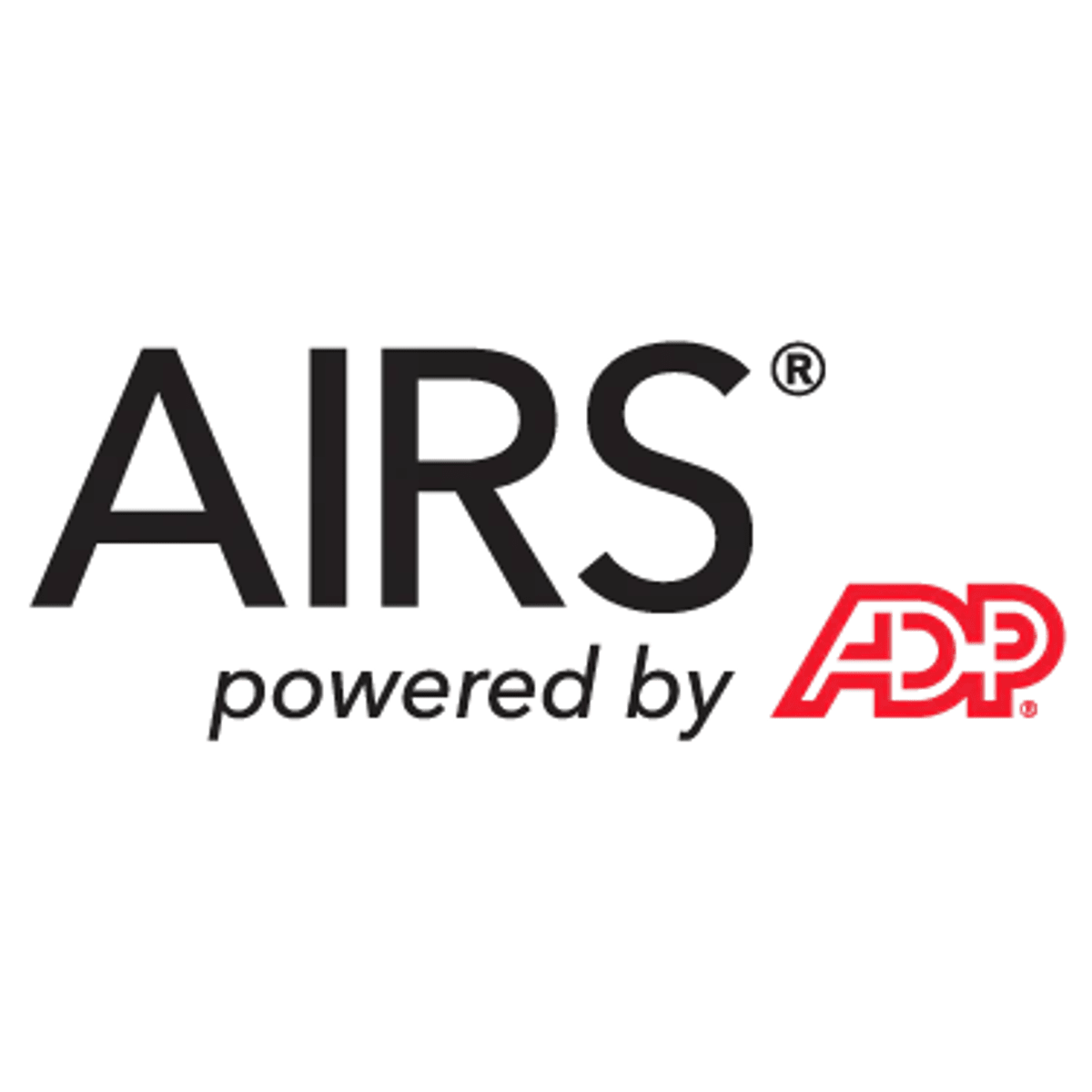Talent Acquisition Partner
Exploring a Career as a Talent Acquisition Partner
A Talent Acquisition Partner (TAP) plays a critical role in shaping an organization's workforce. Unlike traditional recruiters who often focus on filling immediate vacancies, TAPs take a more strategic, long-term approach. They are deeply involved in understanding a company's future needs, identifying skills gaps, and building pipelines of potential candidates to ensure the organization has the right talent to achieve its objectives.
Working as a Talent Acquisition Partner involves more than just screening resumes; it requires building relationships, understanding market trends, and acting as a strategic advisor to hiring managers and leadership. This role offers the unique opportunity to directly influence a company's culture and success by bringing in the people who will drive innovation and growth. It's a dynamic field that blends analytical thinking with strong interpersonal skills.
Understanding the Talent Acquisition Partner Role
What Does a Talent Acquisition Partner Do?
A Talent Acquisition Partner is fundamentally responsible for the full lifecycle of attracting and hiring employees aligned with an organization's strategic goals. This includes collaborating with hiring managers to define role requirements, developing sourcing strategies to find both active and passive candidates, and managing the interview and selection process. Their focus extends beyond filling current openings to building a proactive pipeline of talent for future needs.
Core responsibilities often involve creating compelling job descriptions, utilizing various channels like job boards, social media, and professional networks to find candidates, and conducting initial screenings or interviews. TAPs also play a key part in negotiating offers and ensuring a smooth onboarding process for new hires. They act as brand ambassadors, promoting the company culture to attract top talent.
Furthermore, Talent Acquisition Partners contribute to workforce planning by analyzing hiring trends, forecasting future talent needs, and providing data-driven insights to leadership. They monitor key recruitment metrics such as time-to-fill, cost-per-hire, and quality-of-hire to continuously improve the effectiveness of talent acquisition strategies. Their work directly impacts the organization's ability to compete and grow.
This course provides valuable insights into improving the onboarding process, a key responsibility often managed or influenced by TAPs.
Talent Acquisition vs. General Human Resources
While Talent Acquisition is a specialized function within the broader field of Human Resources (HR), there are key distinctions. General HR roles often encompass a wide range of responsibilities, including employee relations, compensation and benefits, training, and compliance. Their focus is typically on managing the existing workforce and maintaining internal processes.
Talent Acquisition Partners, conversely, are primarily externally focused, concentrating specifically on identifying, attracting, and securing new talent for the organization. They operate more like strategic marketers and relationship builders, cultivating networks and promoting the employer brand to potential candidates. Their scope is centered on the "front end" of the employee lifecycle.
Think of it this way: a general HR Manager might handle payroll, employee grievances, and performance reviews for current staff. A Talent Acquisition Partner, however, spends their time researching talent markets, interviewing potential hires, managing candidate pipelines, and advising managers on hiring strategy. While both roles are crucial for a company's success, the TAP is specialized in bringing talent *into* the organization.
These resources provide foundational knowledge in human resources and communication, which are relevant for both general HR and specialized talent acquisition roles.
Where Do Talent Acquisition Partners Work?
Talent Acquisition Partners are found across a wide array of industries, from technology and finance to healthcare, retail, and manufacturing. Any organization large enough to require a strategic approach to hiring, particularly those experiencing growth or transformation, is likely to employ TAPs. Their skills are valuable wherever acquiring specialized talent is a competitive advantage.
The prevalence of this role often increases with company size. Large multinational corporations typically have dedicated talent acquisition teams, often specialized by function (e.g., technical recruiting, executive search). However, rapidly growing startups and mid-sized companies also recognize the need for strategic talent acquisition beyond basic recruitment, creating opportunities in smaller, dynamic environments.
Some TAPs work in-house directly for an organization, while others may work for recruitment agencies or as independent consultants, partnering with multiple clients. This offers flexibility in work environment and industry exposure. The common thread is the focus on strategic hiring rather than just filling vacancies transactionally.
Impact on Organizational Success
The work of a Talent Acquisition Partner has a direct and significant impact on an organization's bottom line and long-term success. By attracting and hiring high-quality candidates efficiently, TAPs help reduce recruitment costs and minimize the time key positions remain vacant. This ensures business continuity and productivity.
Strategically, TAPs ensure that the company acquires the necessary skills and competencies to execute its business strategy, enter new markets, or innovate. They contribute to building diverse and inclusive workforces, which research consistently links to improved performance and innovation. Their efforts in employer branding also enhance the company's reputation, making it easier to attract top talent in the future.
Effective workforce planning, guided by insights from Talent Acquisition Partners, allows organizations to anticipate future needs and proactively build talent pipelines. This prevents reactive hiring scrambles and ensures the company is prepared for growth, market shifts, or technological changes. Ultimately, a strong talent acquisition function is a key driver of competitive advantage.
Key Concepts and Tools in Talent Acquisition
Recruitment Strategies: Finding the Right Talent
Talent Acquisition Partners employ various strategies to find candidates. A primary distinction is between sourcing active and passive candidates. Active candidates are actively looking for new opportunities and may apply directly to job postings. Passive candidates are typically employed and not actively job searching, but might be open to the right opportunity if approached correctly.
Sourcing passive candidates often requires more proactive and targeted outreach through platforms like LinkedIn, professional networks, industry events, and referrals. This approach is crucial for finding individuals with specialized skills or experience who may not be visible through traditional job boards. Building relationships with potential future candidates, even before a specific role opens up, is a key part of strategic talent acquisition.
Other strategies include leveraging employer branding to attract candidates organically, building talent pools or communities around specific skill sets, and developing strong internal referral programs. The chosen strategy often depends on the specific role, industry, and the urgency of the hiring need. A multi-faceted approach is usually most effective.
Essential Tools of the Trade
Modern talent acquisition relies heavily on technology. Applicant Tracking Systems (ATS) are fundamental tools used to manage the recruitment process from posting jobs to screening applications and tracking candidate progress. They help organize large volumes of applications and ensure compliance.
An ATS acts like a specialized database for resumes and candidate information. When you apply online, your application usually goes directly into an ATS. The system allows recruiters to search for keywords, filter candidates based on qualifications, track communication, and manage the workflow efficiently, especially when dealing with hundreds or thousands of applicants for various roles.
Platforms like LinkedIn Recruiter are indispensable for sourcing passive candidates, identifying potential fits based on skills and experience, and engaging with them directly. Candidate Relationship Management (CRM) systems are also increasingly used to build and nurture relationships with potential candidates over time, creating talent pipelines for future roles, similar to how sales teams manage leads.
Beyond these core platforms, TAPs might use specialized sourcing tools, video interviewing software, assessment platforms, and data analytics tools to inform their strategies and improve efficiency. Familiarity with the HR technology landscape is becoming increasingly important for success in this field. Learners can browse courses on OpenCourser to find training on specific software tools.
These courses offer insights into using platforms like LinkedIn effectively for career-related purposes, a key skill for TAPs.
Compliance and Diversity, Equity, and Inclusion (DEI)
Talent Acquisition Partners must operate within a complex web of employment laws and regulations. This includes ensuring non-discrimination, adhering to regulations regarding background checks, and maintaining accurate records. Understanding laws like the Equal Employment Opportunity (EEO) guidelines in the US, or similar legislation globally, is crucial to avoid legal risks.
Beyond legal compliance, there is a strong focus on Diversity, Equity, and Inclusion (DEI) in modern talent acquisition. TAPs play a critical role in developing and implementing strategies to attract a diverse pool of candidates and ensure fair and equitable hiring processes. This involves mitigating unconscious bias in screening and interviewing, using inclusive language in job descriptions, and potentially partnering with diverse professional organizations.
Implementing DEI frameworks requires ongoing effort and awareness. This might involve training for hiring managers, reviewing selection criteria for potential bias, and tracking diversity metrics throughout the hiring funnel. A commitment to DEI is not just ethically important but also contributes to building stronger, more innovative teams.
This course focuses on inclusive talent acquisition, a critical aspect of modern recruitment.
Employer Branding and Candidate Experience
Employer branding refers to how an organization markets itself to potential employees. Talent Acquisition Partners are often key players in shaping and communicating this brand. They ensure that the company's values, culture, and opportunities are effectively conveyed through job postings, career pages, social media, and interactions with candidates.
A strong employer brand helps attract candidates who align with the company's culture and reduces reliance on costly external recruiters. It involves showcasing employee testimonials, highlighting company achievements, and providing insights into the work environment. Consistency in messaging across all touchpoints is vital.
Candidate experience encompasses every interaction a potential employee has with the organization during the recruitment process. A positive candidate experience, even for those not hired, can enhance the employer brand and encourage future applications or referrals. TAPs strive to ensure the process is respectful, transparent, and efficient, providing timely communication and feedback.
Formal Education Pathways
Relevant Academic Backgrounds
While there isn't one single required degree to become a Talent Acquisition Partner, certain fields of study provide a strong foundation. Bachelor's degrees in Human Resources Management are highly relevant, covering topics like employment law, compensation, and organizational behavior.
Degrees in Business Administration often include coursework in management, marketing, and strategy, which are applicable to the business-oriented nature of talent acquisition. Psychology or Sociology degrees can also be beneficial, offering insights into human behavior, motivation, and group dynamics, which are useful in interviewing and assessment.
Ultimately, strong communication, analytical, and interpersonal skills are more critical than a specific degree major. Many successful TAPs come from diverse academic backgrounds, including communications, marketing, or even liberal arts, leveraging transferable skills gained through their studies and early career experiences.
Advanced Studies and Certifications
For those seeking specialized knowledge, graduate certificates or Master's degrees focusing on Human Resource Management, Organizational Development, or Talent Management can provide deeper expertise. These programs often delve into advanced topics like strategic workforce planning, talent analytics, and leadership development.
Professional certifications are also highly valued in the field. Organizations like the Society for Human Resource Management (SHRM) offer certifications such as the SHRM-CP (Certified Professional) and SHRM-SCP (Senior Certified Professional), which cover talent acquisition principles. While not always mandatory, certifications can demonstrate commitment and standardized knowledge.
Some professionals may pursue specialized certifications focused specifically on recruitment or talent acquisition offered by various industry bodies. These can provide focused training on sourcing techniques, recruitment technology, or specific areas like technical recruiting. Consider exploring resources from reputable organizations like SHRM (Society for Human Resource Management) for information on widely recognized HR certifications.
Key University Course Topics
University coursework that directly supports a career in talent acquisition often includes topics like Employment Law, which covers the legal framework governing hiring practices. Courses in Organizational Behavior or Industrial-Organizational Psychology provide insights into employee motivation, team dynamics, and assessment methods.
Specific courses on Recruitment and Selection (sometimes called Staffing) directly address the core functions of the role, covering sourcing, interviewing techniques, and selection strategies. Behavioral interviewing techniques, which focus on past behavior as a predictor of future performance, are often a key component.
Increasingly, courses covering Workforce Analytics or HR Metrics are valuable. These teach students how to use data to measure recruitment effectiveness, forecast talent needs, and make evidence-based decisions. Strong analytical skills are becoming essential for strategic talent acquisition.
These courses delve into interviewing techniques and emotional intelligence, crucial skills often covered in relevant university programs or professional development for TAPs.
These books offer practical advice on navigating the job search and interview process, reinforcing concepts learned in formal education and essential for TAP effectiveness.
Research Opportunities in Talent Trends
For those pursuing advanced degrees, such as a PhD in Human Resources, Organizational Behavior, or related fields, there are numerous research opportunities relevant to talent acquisition. Researchers might study the effectiveness of different sourcing channels, the impact of AI on hiring decisions, or best practices for improving diversity in recruitment.
Other research areas include exploring the factors influencing candidate experience, the validity and fairness of different assessment methods, or the long-term impact of hiring strategies on organizational performance. Investigating evolving talent market dynamics, such as the rise of the gig economy or the skills needed for future jobs, is also a significant area of study.
Academic research contributes valuable insights that can inform industry best practices and shape the future of talent acquisition. Findings are often published in academic journals and presented at conferences, influencing both scholars and practitioners. Institutions like Cornell's ILR School often publish research in these areas.
Online Learning and Skill Development
Transitioning via Self-Study and Online Courses
Entering the talent acquisition field doesn't always require a traditional degree path. Many individuals successfully transition into recruitment and talent acquisition roles through focused self-study and online learning, especially if they possess related experience in fields like sales, customer service, or marketing. This path requires discipline but offers flexibility.
Online platforms like OpenCourser offer a vast array of courses covering fundamental HR principles, specific recruitment techniques, interviewing skills, and familiarity with essential tools like ATS and LinkedIn Recruiter. These courses provide structured learning paths that can be pursued flexibly alongside current employment or other commitments. Finding the right courses can feel overwhelming, but tools like OpenCourser's search and filtering capabilities help narrow down options.
Building a solid understanding of the recruitment lifecycle, key terminology, and best practices through online resources can make candidates competitive for entry-level recruiting or HR coordinator roles, which often serve as stepping stones to a Talent Acquisition Partner position. It demonstrates initiative and a commitment to learning the field. Remember to check the OpenCourser Learner's Guide for tips on maximizing your online learning experience.
This comprehensive course provides a dedicated overview of the Talent Acquisition lifecycle, ideal for structured self-study.
Prioritizing Critical Skills
When using online learning for a career pivot, focus on developing high-demand skills. Strong communication abilities, both written and verbal, are paramount for interacting with candidates and hiring managers. Courses focusing on business communication or presentation skills can be highly beneficial.
Negotiation skills are crucial for managing salary discussions and closing offers. Look for courses or resources that teach effective negotiation strategies and tactics. Additionally, develop data literacy – the ability to understand and interpret recruitment metrics – as data-driven decision-making is increasingly important. Online courses in basic data analysis or HR analytics can provide this foundation.
Other essential skills easily honed through online learning include time management, organization (especially for handling multiple roles and candidates), and proficiency with key software tools like Microsoft Excel for reporting and, if possible, specific ATS or CRM platforms. Building these skills demonstrates readiness for the demands of the role.
This book provides a focused look at achieving excellence in the field, potentially helping prioritize skills for development.
Building Experience Through Practical Application
Theoretical knowledge from online courses is valuable, but practical application solidifies learning and demonstrates capability to potential employers. Consider creating mock recruitment campaigns as projects. This could involve defining a fictional role, writing a job description, outlining a sourcing strategy, and developing sample interview questions.
Documenting these projects in a portfolio can showcase your understanding of the recruitment process. You might analyze a real company's career page and suggest improvements, or research and present on sourcing strategies for a hard-to-fill role. This proactive approach impresses potential employers.
Another excellent way to gain hands-on experience is through volunteer work. Many non-profit organizations need help with recruitment. Volunteering to assist with their hiring processes, even in a limited capacity, provides real-world exposure and tangible results to discuss in interviews. It's a great way to apply newly learned skills.
This course focuses on practical aspects like intake and assessment, useful for building hands-on understanding through simulated or real-world application.
Career Progression for Talent Acquisition Partners
Entry Points and Early Career Roles
Most individuals don't start their careers directly as Talent Acquisition Partners. Common entry points include roles like Recruiter, Recruitment Coordinator, HR Assistant, or Talent Sourcer. These positions provide foundational experience in candidate sourcing, screening, interview scheduling, and understanding recruitment processes.
In these initial roles, individuals learn the basics of using recruitment tools (like ATS), interacting with candidates, and working with hiring managers. Excelling in these positions involves developing strong organizational skills, attention to detail, effective communication, and a proactive approach to finding candidates.
Experience in related fields like sales, customer service, or project coordination can also provide a pathway. These roles often develop transferable skills in communication, relationship building, and managing processes, which are valuable in recruitment. Starting in an adjacent field and demonstrating relevant skills can facilitate an internal or external move into recruiting.
Advancing to Leadership and Strategic Roles
After gaining experience as a Recruiter or Specialist, the next step is often the Talent Acquisition Partner role, which involves more strategic responsibility and closer partnership with business units. From there, career progression can lead to senior TAP roles, Talent Acquisition Lead positions managing small teams, or Talent Acquisition Manager roles overseeing a larger function or region.
Promotion criteria typically include demonstrated success in filling complex roles, strong stakeholder management skills, strategic thinking ability, and often, leadership potential. At higher levels, like Talent Acquisition Manager or Director of Talent Acquisition, responsibilities shift towards team leadership, overall strategy development, budget management, and reporting to senior executives.
Developing expertise in specific areas like executive search, technical recruiting, university relations, or employer branding can also create pathways for advancement into specialized leadership roles. Continuous learning and adapting to industry changes are key for long-term growth.
Pivoting to Adjacent Fields
The skills and experience gained as a Talent Acquisition Partner open doors to other roles within and outside of HR. A common transition is into an HR Business Partner (HRBP) role. HRBPs work closely with specific business units on a broader range of HR issues, including talent management, employee relations, and performance management, leveraging the business understanding gained in talent acquisition.
Other potential transitions include roles in Organizational Development, focusing on employee training and development programs, or Compensation and Benefits analysis. Some TAPs leverage their market knowledge and relationship skills to move into consulting roles, either independently or with recruitment or HR consulting firms.
The strategic perspective, understanding of business needs, and stakeholder management skills honed as a TAP are highly transferable to various strategic and people-focused roles within an organization. Exploring these options can be part of long-term career planning.
Global Mobility and Industry Specialization
Talent acquisition skills are often transferable across borders, offering opportunities for global mobility, particularly within large multinational corporations. Experience managing recruitment in different legal and cultural contexts can be a significant career advantage, leading to international assignments or roles overseeing global talent acquisition strategies.
While core principles remain similar, recruitment practices can vary significantly by industry. Some TAPs choose to specialize in a particular sector, such as technology, finance, healthcare, or engineering. Developing deep industry knowledge allows them to better understand specific skill requirements, connect with niche talent pools, and speak the language of hiring managers and candidates in that field.
This specialization can lead to higher demand and potentially higher compensation, as deep expertise in recruiting for high-demand industries is highly valued. However, generalist TAPs also thrive, bringing broad market knowledge and adaptability to diverse organizations.
This course, though focused on female leadership and in Spanish, touches upon skills relevant for operating in diverse and global contexts.
Talent Acquisition Partner in Organizational Strategy
Driving Efficiency: Cost and Time Metrics
Talent Acquisition Partners contribute directly to operational efficiency by optimizing key recruitment metrics. Reducing the average time-to-fill for open positions minimizes productivity loss and ensures projects stay on track. By implementing efficient sourcing and screening processes, TAPs help lower the cost-per-hire, saving the organization resources.
Tracking these metrics allows TAPs to identify bottlenecks in the hiring process and implement improvements. For example, analyzing source effectiveness can help allocate budget towards the most productive channels. Improving the quality-of-hire, meaning new employees ramp up quickly and perform well, also reduces long-term costs associated with turnover and retraining.
This focus on efficiency and quantifiable results elevates talent acquisition from a purely administrative function to a strategic contributor recognized for its impact on the bottom line. Financial analysts and senior leaders often look at these metrics as indicators of HR effectiveness.
Aligning Talent Pipelines with Business Goals
A core strategic function of a Talent Acquisition Partner is ensuring that the company's talent pipeline aligns with its long-term business objectives. This involves understanding the company's growth plans, new product launches, market expansions, or technological shifts and identifying the skills and roles needed to support these initiatives.
TAPs work with leadership and hiring managers to forecast future talent needs proactively. They then build relationships and pipelines with individuals possessing those critical skills, even if immediate openings don't exist. This strategic foresight prevents delays when new roles need to be filled quickly.
This alignment ensures that talent acquisition efforts are not just filling vacancies but actively enabling the company's strategic direction. It requires TAPs to have a solid understanding of the business and the industry landscape, functioning as true partners to the business units they support.
Collaborating with the C-Suite
Effective Talent Acquisition Partners often collaborate closely with senior leadership, including C-suite executives (CEO, CFO, CTO, etc.). They provide insights into the talent market, advise on workforce planning, and discuss the feasibility of acquiring talent needed for strategic initiatives.
This collaboration might involve presenting data on hiring trends, discussing challenges in attracting specific skills, or outlining strategies to build a more diverse leadership pipeline. TAPs act as advisors, helping leadership understand the talent implications of business decisions.
Building credibility with the C-suite requires strong communication skills, business acumen, and the ability to present data-driven recommendations. This high-level interaction underscores the strategic importance of the talent acquisition function in successful organizations and is often a key differentiator for senior TAP roles.
Impact on Company Valuation and Growth
While less direct, the effectiveness of talent acquisition can influence a company's perceived value, particularly for investors and potential acquirers. A demonstrated ability to attract and retain top talent suggests strong leadership, a positive culture, and the capacity for sustained growth and innovation.
Efficient talent acquisition enables companies to scale their operations effectively to meet market demand or capitalize on growth opportunities. Having the right people in place quickly is crucial for executing expansion plans. Conversely, struggles with hiring key talent can hinder growth and negatively impact investor confidence.
In knowledge-based industries like technology or professional services, the quality of talent is often a primary driver of company value. Therefore, the strategic function performed by Talent Acquisition Partners in securing this talent is intrinsically linked to the organization's overall valuation and potential.
Ethical Challenges in Talent Acquisition
Mitigating Bias in Recruitment Tools
The increasing use of Artificial Intelligence (AI) and algorithms in recruitment tools, from resume screeners to assessment platforms, presents significant ethical challenges. These tools can inadvertently perpetuate or even amplify existing societal biases if not carefully designed and monitored.
Talent Acquisition Partners must be vigilant about potential bias in the technologies they use. This involves understanding how algorithms work, questioning vendors about fairness audits, and regularly reviewing outcomes to ensure tools are not disproportionately screening out candidates from certain demographic groups.
Ethical practice requires advocating for transparency in how AI tools make decisions and ensuring human oversight remains a critical part of the selection process. The goal is to leverage technology to improve efficiency and fairness, not to automate biased outcomes. Staying informed through resources discussing AI ethics is crucial.
Data Privacy and Candidate Screening
Collecting and handling candidate data requires strict adherence to privacy regulations, such as the GDPR in Europe or similar laws elsewhere. TAPs must ensure that data collection is necessary, consent is obtained appropriately, and candidate information is stored securely and used only for its intended purpose.
Background checks, social media screening, and reference checks also raise ethical considerations. TAPs must ensure these processes are conducted fairly, consistently, and in compliance with relevant laws. Transparency with candidates about what information is being collected and how it will be used is essential.
Balancing the need to thoroughly vet candidates with respecting their privacy rights is a constant ethical tightrope walk. Maintaining confidentiality and using information responsibly builds trust and protects both the candidate and the organization.
Transparency in Negotiations
The negotiation process, particularly around salary and benefits, requires ethical handling. Talent Acquisition Partners should strive for transparency regarding compensation ranges and policies whenever possible, although company practices vary widely.
Ethical negotiation involves providing accurate information, avoiding misleading statements, and ensuring offers are equitable based on the role, experience, and internal pay structures. It also means respecting candidate confidentiality during the process.
Ensuring fairness and consistency in how offers are determined and presented helps build a reputation for integrity and can positively impact the candidate experience, regardless of the final outcome.
Handling Internal Promotions and Conflicts
Talent Acquisition Partners are sometimes involved in internal mobility and promotion processes. This can create potential conflicts of interest, particularly if the TAP has relationships with internal candidates or if processes favor internal hires unfairly over external applicants.
Maintaining objectivity and ensuring a fair process for all candidates, both internal and external, is crucial. Clear policies and transparent communication about how internal candidates are considered alongside external ones can help mitigate perceived bias.
Ethical TAPs navigate these situations by focusing on the requirements of the role and advocating for the most qualified candidate, regardless of their internal or external status, while adhering to established company procedures for internal mobility.
Market Trends Shaping Talent Acquisition
The Rise of the Gig Economy and Contingent Workforce
The increasing prevalence of freelance, contract, and temporary work (the gig economy) is changing how organizations approach talent. Talent Acquisition Partners are increasingly involved in sourcing and managing this contingent workforce alongside traditional permanent hires.
This requires adapting strategies to engage freelancers, understanding different types of contract arrangements, and potentially utilizing platforms specifically designed for gig workers. Managing a blended workforce of permanent and contingent employees presents new challenges and opportunities for workforce planning.
Organizations need flexible talent strategies, and TAPs play a role in building relationships with skilled contractors and integrating them effectively into projects and teams. This trend demands greater agility in talent acquisition practices.
Remote Hiring and Distributed Teams
The widespread adoption of remote and hybrid work models, accelerated by the pandemic, has fundamentally altered talent acquisition. TAPs now often recruit for roles that can be performed from anywhere, significantly widening the potential talent pool beyond local geographic boundaries.
This necessitates expertise in virtual interviewing techniques, assessing candidates for remote work suitability, and understanding the legal and logistical complexities of hiring across different states or countries. Onboarding remote employees effectively also requires new approaches.
While offering access to more talent, remote hiring also increases competition, as companies worldwide can now target the same candidates. Employer branding and creating a strong virtual candidate experience become even more critical in this environment. Check resources from firms like Gallup for insights into remote work trends.
This course addresses the specific challenges and techniques for online interviews, a key skill in the remote hiring era.
Artificial Intelligence in Predictive Hiring
AI continues to evolve beyond simple screening, moving towards predictive analytics in hiring. AI tools aim to analyze data from various sources (resumes, assessments, performance data) to predict which candidates are most likely to succeed in a specific role or within the company culture.
This trend requires TAPs to become more data-savvy, understanding how these predictive models work and critically evaluating their outputs. While promising efficiency gains, the ethical implications, particularly regarding bias and fairness, remain a significant concern that requires careful management.
The role of the TAP may shift towards interpreting AI-driven insights, overseeing the ethical use of these tools, and focusing on the human elements of recruitment—relationship building, complex negotiations, and ensuring a positive candidate experience—that AI cannot replicate.
Impact of Automation on Skill Demands
As automation transforms various industries, the types of skills companies need are changing rapidly. Talent Acquisition Partners must stay informed about these shifts to effectively source candidates with future-proof skills, such as critical thinking, creativity, emotional intelligence, and digital literacy.
The demand for roles focused on managing and developing AI, data science, and automation technologies is growing, requiring TAPs to understand these technical fields or partner effectively with specialized recruiters. Simultaneously, roles heavily reliant on routine tasks may decline, shifting recruitment focus.
TAPs need to be adaptable, continuously learning about emerging skill requirements and adjusting their sourcing strategies accordingly. This requires ongoing market research and collaboration with business leaders to anticipate future talent needs driven by technological change. Resources like the World Economic Forum's Future of Jobs report often provide valuable insights.
Frequently Asked Questions about a Career as a Talent Acquisition Partner
What is the typical salary range?
Compensation for Talent Acquisition Partners varies considerably based on factors like geographic location, industry, company size, and years of experience. Entry-level recruitment or sourcing roles typically have lower starting salaries, while experienced TAPs, especially those in high-demand industries like tech or finance, can command significantly higher compensation.
Salary structures may also include performance-based bonuses tied to hiring metrics like time-to-fill, quality-of-hire, or meeting diversity goals. Senior roles like Talent Acquisition Manager or Director naturally have higher earning potential, reflecting their increased scope of responsibility and strategic impact.
It's advisable to research salary benchmarks for specific locations and industries using resources like the Bureau of Labor Statistics (BLS) Occupational Employment Statistics, salary comparison websites (like Robert Half or Salary.com - note: external links to these specific commercial sites are generally avoided unless specified), or industry reports to get a realistic expectation for your situation.
What transferable skills are valuable?
Many skills gained in other professions are highly transferable to talent acquisition. Experience in sales or business development often translates well, as both involve prospecting, building relationships, negotiation, and closing deals (in this case, job offers).
Customer service roles develop strong communication, problem-solving, and relationship management skills, all crucial for managing candidate experience. Marketing experience is valuable for understanding employer branding and crafting compelling job descriptions. Even teaching experience can be relevant, honing skills in communication, assessment, and providing feedback.
Project management skills are also beneficial for juggling multiple requisitions and managing the hiring process efficiently. Essentially, any role requiring strong interpersonal skills, strategic thinking, organization, and persuasive communication can provide a good foundation for entering the field.
Are certifications more important than experience?
Both certifications and experience play a role, but in talent acquisition, practical experience often carries more weight, especially for mid-career and senior roles. Demonstrated success in sourcing, interviewing, and hiring quality candidates is highly valued by employers.
Certifications (like SHRM-CP/SCP or specialized recruiting certifications) can be valuable, particularly early in a career or when transitioning into the field. They demonstrate foundational knowledge, commitment to the profession, and can sometimes be preferred or required by certain employers. They can help make a resume stand out when competing against candidates with similar experience levels.
Ultimately, the ideal candidate often possesses a combination of relevant experience and potentially a certification or relevant degree. For those lacking direct experience, certifications combined with demonstrable transferable skills and self-study (perhaps including online courses found via OpenCourser search) can help bridge the gap.
Are there freelance or contract opportunities?
Yes, the field of talent acquisition offers numerous freelance and contract opportunities. Many companies hire contract recruiters or TAPs to manage hiring surges, cover leaves of absence, or handle specific projects like launching a new division or implementing a new ATS.
Working as a contractor provides flexibility and exposure to different industries and company cultures. It can be an excellent way to gain experience or build a portfolio career. Some TAPs build successful careers as independent consultants, offering specialized recruitment services to multiple clients.
Platforms connecting freelancers with projects often feature talent acquisition roles. However, contract work may lack the stability and benefits of permanent employment, requiring strong self-management and business development skills if working independently.
How do economic downturns affect hiring roles?
Recruitment and talent acquisition roles are often sensitive to economic cycles. During economic downturns, companies frequently slow down or freeze hiring, which can lead to reduced demand for recruiters and potential layoffs within talent acquisition teams.
However, the strategic nature of the Talent Acquisition Partner role can offer some resilience compared to purely transactional recruiting roles. Organizations may still need TAPs for critical hires, internal mobility, workforce planning, and managing restructuring efforts. Those with strong strategic skills and business acumen may be retained even during downturns.
Conversely, during periods of economic growth, demand for TAPs typically surges as companies compete fiercely for talent. This cyclical nature is an important reality of the profession to consider when planning a career in this field.
What are the day-to-day challenges and rewards?
Daily challenges in talent acquisition can include managing high volumes of requisitions, dealing with demanding hiring managers, facing intense competition for candidates, handling rejections (both giving and receiving), and navigating the constant pressure to fill roles quickly with quality hires. The work can be fast-paced and sometimes unpredictable, requiring strong resilience.
Despite the challenges, the rewards can be substantial. Successfully finding the perfect candidate for a critical role, helping someone land their dream job, and seeing the direct impact of your hires on the organization's success are deeply satisfying. Building strong relationships with candidates and managers, and playing a key role in shaping the company's future are major motivators for many TAPs.
It's a career that demands resilience, empathy, strategic thinking, and excellent communication skills, offering a dynamic blend of people interaction and business strategy. These books offer guidance on navigating interviews, a core part of the TAP role, addressing both challenges and strategies for success.
Embarking on a career as a Talent Acquisition Partner offers a unique opportunity to operate at the intersection of human resources, strategy, and business growth. It requires a blend of analytical prowess, interpersonal finesse, and a deep understanding of the talent market. While challenging, it provides the rewarding experience of shaping an organization's most valuable asset: its people. Whether you are exploring careers, considering a pivot, or seeking to advance within HR, talent acquisition presents a dynamic and impactful path.













